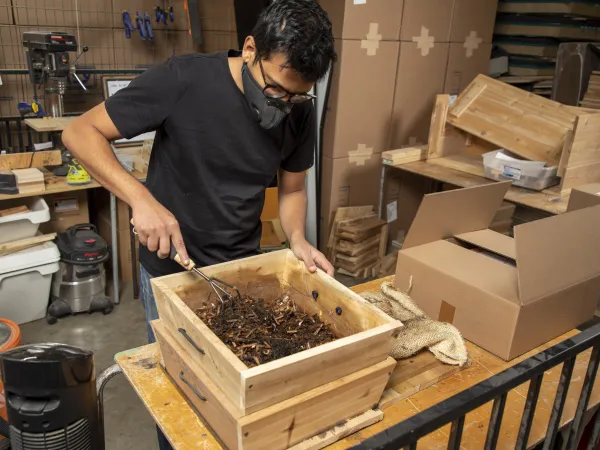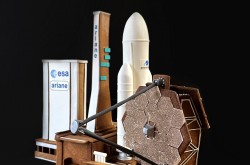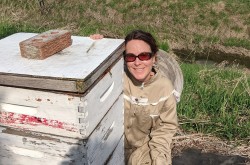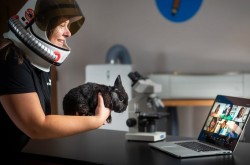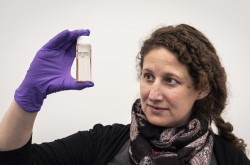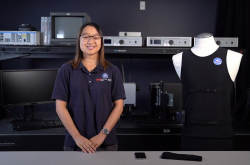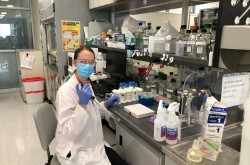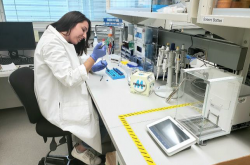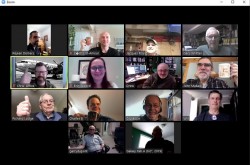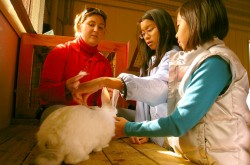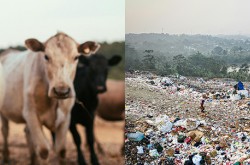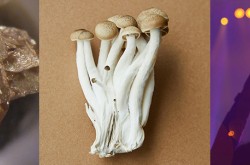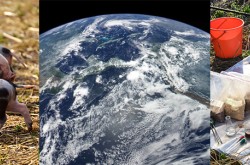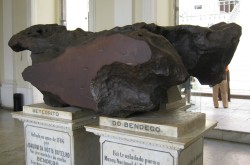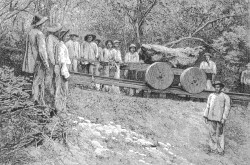The Box of Life: Grow a gorgeous garden with one of nature’s superheroes
If you’re looking to give your garden a boost this summer, you may want to follow Akil Mesiwala’s lead and worm your way to success.
Mesiwala is the founder and owner of a small, Ottawa-based social enterprise called The Box of Life, which sells compact vermicomposting systems — designed for indoor use.
“I feel like earthworms can really change the world,” says Mesiwala.
Vermicomposting is the process by which worms are used to convert organic materials — such as fruit and vegetable peelings — into a humus-like material known as vermicompost.

Mesiwala’s vermicomposters, cleverly called Worm Studios, consist of a series of stylishly-stacked cedar boxes. These boxes act as a vertical migration system for the worms. Kitchen scraps are added to the bottom bin, and when it fills a second bin is added. Once that’s full, you add the third bin. After they finish munching the scraps from the bottom bin, the worms slowly travel upwards through the box’s mesh bottom, leaving behind their castings. When the top bin in nearly full — which takes about a year — it’s time to harvest the precious castings. The lowest bin will contain only castings and no worms, so all you have to do is empty the bin and add it back to the top of the stack; you keep rotating the bins to get castings every three to four months.
“I love the process, and it’s not just me,” says Mesiwala. “If you ask anybody who composts with worms, it takes them a few months and they become converts — it can really suck you in.”
Growing up in Mumbai, India, Mesiwala never imagined himself as a business owner. He emigrated to North America to study renewable energy systems in Boston, and worked as a data analytics consultant for four years before starting his business.
“Consultants don't really see any results, it's very intangible,” explains Mesiwala. “I wanted to literally build something that can help, and I saw that there wasn’t much awareness around vermicomposting.”
It’s clear that Mesiwala is passionate about educating others on the topic of vermicomposting and sustainability. He feels fortunate that he had the chance to visit conservation sites and jungles when he was young, because his parents could afford to do so. He’s aware that not everyone has these opportunities.
“A lot of people are just completely disconnected from nature. So parents want to teach their children about natural systems, but how do you do that — if you’re living in a concrete jungle with very few parks around you? A worm bin is one small thing that lies in your kitchen, and you can teach your kids about bugs, about how the soil is created, and about the complete food cycle.”
~ Akil Mesiwala

Shredded cardboard is a source of carbon and acts as “bedding” in the worm bin. Along with fruit and vegetable waste, it eventually gets converted into worm castings.
Although many Canadian cities, including Ottawa, have a curbside composting program, Mesiwala explains that the result is very different from The Box of Life. Since the City of Ottawa curbside compost has started to accept plastic bags, there are microplastics in the finished compost.
“Because of the contamination from plastics, the output is not really suitable to go back into growing food,” explains Mesiwala. “It can be used in cash crops, but I don’t think anyone would want to use the green bin compost in their gardens.”
He adds that curbside programs treat composting as a waste management solution, when really it is much more.
“I don’t think people are full conscious of what composting is, and why it’s important,” he says. “Composting is not only about waste management, it is about the food systems. It’s about adding nutrition back into the soil. Farming is like mining — [by growing food], you’re extracting nutrients from the soil; unless you add the nutrients back, the soil becomes depleted.”
The Box of Life is designed for red wiggler earthworms or European nightcrawler earthworms; both are available for purchase. Common backyard earthworms don’t work; they are not good at composting and dislike confined spaces. Mesiwala estimates that, on average, the worms munch through two to three kilograms of food waste per week using the three-level system (more with the four-level system).
Mesiwala says that the vermicompost harvested from The Box of Life is a very high-quality living soil.
“Without being too scientific, I like to say that you’re creating healthy soil — the same healthy soil that you find in forests — all because of the ecosystem you’ve created. You’ve got the organisms, visible and invisible, that help in building the foundations of living soil in a worm bin.”
Adding the harvested vermicompost to plants, gardens, or even a neighbourhood tree is better than any commercial fertilizer could ever offer.
“In an urban environment, we rely on synthetic fertilizers to add nutrients back into the soil, but that’s not how nature works,” says Mesiwala. “Nature just doesn’t absorb nutrients that you give it; it needs living ecosystems in the soil for plants to really thrive.”
At the end of the day, Mesiwala says you really have to see it to believe it.
“There is nothing that I can say that can beat the effect that it [the vermicompost] will have on your plants when you see it for yourself for the first time,” he says. “It’s almost like overnight…you will notice the difference in the plants.”
Join Renée-Claude Goulet, Science Advisor for the Canada Agriculture and Food Museum, and special guest Akil Mesiwala, founder of The Box of Life, for a fun, FREE Zoom session about vermicomposting. For more details and to register, visit Vermicomposting 101: Learn to compost indoors with worms.



